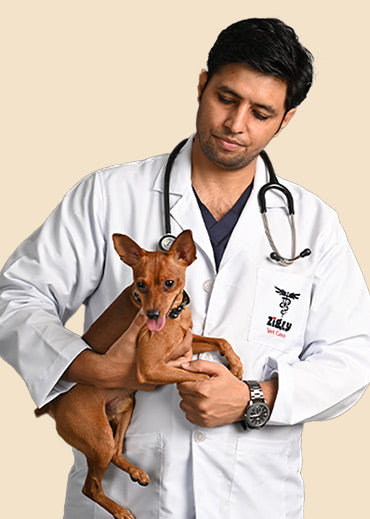Puppy Dental Care: How to Keep Your Pup’s Smile Healthy
A statistic that may seem alarming is that nearly 80% of dogs develop dental problems by age 2—most commonly, gum disease. So what's the best cure? Prevention. By establishing a proper puppy dental care routine early on, you can help your furry friend avoid future complications. Here’s everything you need to know to get started.
The Right Dental Care Routine for Puppies
Start dental care as early as possible—ideally once your pup has developed adult teeth around 6 months of age. A consistent routine can prevent tartar build-up, gum disease, and expensive dental procedures later.
1. Start with Brushing
Brushing your puppy’s teeth is one of the most effective ways to maintain oral hygiene. Begin by rubbing your puppy’s gums gently with your finger. Once they’re used to this, transition to a soft rubber brush and use puppy-safe toothpaste. Note: Never use human toothpaste on dogs.
2. Use Puppy Chew Toys and Dental Treats
Puppies go through a teething phase, and giving them proper chew toys helps ease discomfort while also cleaning their teeth. Dental treats and toys help reduce plaque and tartar naturally and keep them from chewing on furniture or other inappropriate items.
3. Schedule Regular Dental Check-Ups
Dental exams should be part of your vet visits. Your vet will check your puppy's teeth, gums, and may recommend a professional cleaning if needed. Ideally, schedule a dental check-up twice a year.
Frequently Asked Questions (FAQs)
1. When should I start brushing my puppy’s teeth?
Start once your puppy has their adult teeth—around 6 months of age. However, you can begin desensitizing them earlier by gently massaging their gums.
2. How often should I brush my puppy’s teeth?
Ideally, brush your puppy's teeth daily. If that’s not possible, aim for at least 3–4 times a week to prevent plaque build-up.
3. Can I use human toothpaste for my dog?
No. Human toothpaste contains ingredients that are toxic to dogs. Always use a dog-specific toothpaste recommended by your vet.
4. What are good dental treats or toys for puppies?
Look for vet-recommended dental chews, rubber toys made for teething, and edible dental treats specifically designed to reduce tartar and plaque.
5. How do I know if my puppy has dental issues?
Signs include bad breath, red or bleeding gums, excessive drooling, pawing at the mouth, or difficulty eating. If you notice these symptoms, consult your vet immediately.
Conclusion: Start Puppy Dental Care Early for a Healthier Future
Dental care isn’t just about a pretty smile—it’s essential to your puppy’s overall health. Starting a brushing routine, using the right chew toys, and scheduling regular vet visits can go a long way in preventing dental diseases. If you're unsure where to start, consult a vet or visit Zigly for expert guidance. Our team can perform a full dental check-up and recommend personalized care for your pup’s oral hygiene. Give your puppy the healthy start they deserve—because a happy pup begins with a healthy mouth!




